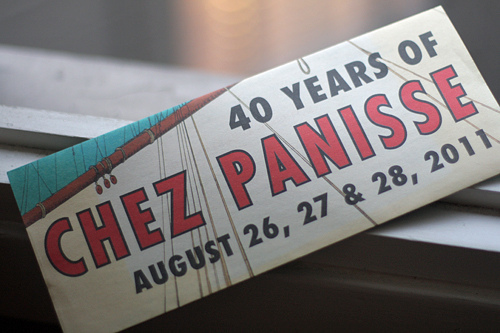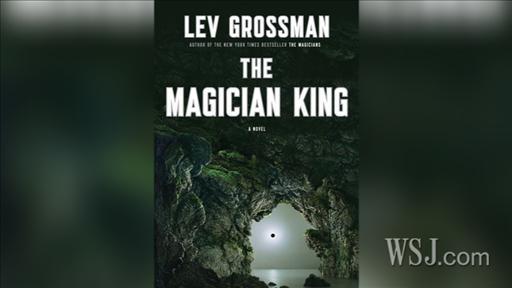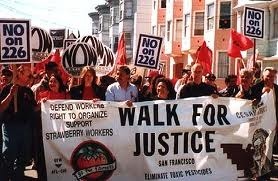Alon Shalev's Blog, page 61
September 6, 2011
The Green Sky is Falling! The Green Sky is Falling! Solyndra is Closing! – Tom Rossi
Several politicians, including President Obama, have made Solyndra their poster "green economy" company – only to watch it shut its new plant, and file for chapter 11. What a shock. A medium-sized company in America closing down. It must be because the whole green economy idea is a failure, right? It must mean that sustainability is a false idol, a dead-end road.
Well… bull. Here's a list, courtesy of Wikipedia, of companies considered significant to our economy that have gone bankrupt in just two years, 2008 and 2009:
Allco Finance Group
Aloha Airlines
Amtrak Express Parcels
Apex Aircraft
ATA Airlines
Australian School of Business and Technology
Bennigan's
Bill Heard Enterprises
Buffets, Inc.
Circuit City
Coast Air
Commander Communications
Countrywide Financial
Dawahares
Dolcis
eos Airlines
FreshXpress
Frontier Airlines
Gamley's
Glitnir
Gretna F.C.
Halifax Town A.F.C.
Harold's
Holley Performance Products
IndyMac Bank
International Race of Champions
iQon Technologies
Kaupthing Bank
Kaupthing Singer & Friedlander
Krispy Kreme Hong Kong
Landsbanki
Lehman Brothers
Lenox
Levitz Furniture
Lillian Vernon
Linens 'n Things
Luton Town F.C.
Madoff Investment Securities
Mattress Discounters
Mervyns
Meguro Sushi
MFI Group
Montres Villemont
Morgan UK
Motorworld
Nationwide Airlines
Oasis Hong Kong Airlines
The Officers Club
Olan Mills
Opes Prime
Peau Vavaʻu
Photo-Optix
Pilgrim's Pride
RC Developments
Rosebys
Rotherham United F.C.
Sanlu Group
Sharper Image
Shoe Pavilion
Silver State Helicopters
Silverjet
Skybus Airlines
Super Aguri F1
Tai Lin Radio Service
Tribune Company
Tropicana Resort & Casino
Tuctuc Ltd
Tweeter
U-Right
USC
Value City
VeraSun Energy
Vivitar
Wachovia
Washington Mutual
WCI Communities
Wickes Furniture
Wilsons Leather
WiQuest Communications
Woolworths Group
XL Airways UK
Yamato Life Insurance Company
Zavvi
Ziff-Davis
Zoom Airlines
3D Realms
A1 Grand Prix Operations
AbitibiBowater
Allied Carpets
Apex Silver Mines
Arcandor
Babcock & Brown
Bashas'
BearingPoint
Berkhamsted Town F.C.
Borders UK
CIT Group
Boater's World
Colonial Bancgroup
Central Park Media
Charter Communications
Christian Lacroix
Crabtree & Evelyn
Darlington F.C.
Denver Newspaper Agency
Empire Direct
Extended Stay Hotels
Escada
Fisher Athletic F.C.
First Quench Retailing
Fleetwood Enterprises
FlyLAL
Fortunoff
Goody's Family Clothing
Gottschalks
Hartmarx
Idearc
Joe's
Journal Register Company
Karmann
KB Toys
Land of Leather
LDV Group Limited
FC Lyn Oslo
LyondellBasell
Märklin
Magna Entertainment Corp.
Merisant
Midway Games
Monaco Coach Corporation
Nortel Networks
Peanut Corporation of America
Philadelphia Media Holdings[84]
Qimonda
R. H. Donnelley
The Reader's Digest Association
Ritz Camera
SeeqPod
Send the Light
Setanta Sports
SETA Corporation
SFCG Co.
Silicon Graphics
Smurfit-Stone Container
Spansion
Spectrum Brands
SPV GmbH
SsangYong Motor Company
Stanford Financial Group
Station Casinos
Steve & Barry's
Strathfield
Stylo
Sun-Times Media Group
Taylor, Bean & Whitaker
Tronox
Trump Entertainment Resorts
Viyella
Waterford Wedgwood
Young Broadcasting
Pretty impressive, eh? A few of these are actually foreign-owned and some of these actually went down due to criminal activities of one sort or another, while some were just good old-fashioned empty-cash-register-itis. I don't think any of these failures had anything to do with some sort of "sustainable economy curse."
Empty-cash-register-itis can be caused by any number of things including sinking company money into bad investments, but one reason, shared with Solyndra, is the inability to compete with out-sourced products. This is because the people that run our country (no, not the politicians, but their bosses… and no, I don't mean, "the people") are getting even richer than they already were by investing in foreign operations. For this reason, they have convinced us all that free trade is the greatest thing since the Beatles' "White Album".
"We can't fall back into protectionism! That would be horrible for everybody!" That's what we're always told. But, as Ian Fletcher says in his excellent book, "Free Trade Doesn't Work," we have a huge trade deficit. That means that hundreds of billions of dollars are going overseas each year, and are not coming back (of course our wonderful wars have a similar, if not much worse, effect). It means that we, as a nation, are LOSING the free trade game, and have been for a long, long time.
It's time to say the ultimate four (three?) letter word… tax. Import tariffs are essentially a kind of tax, so let's not mince words. Let's tax those who take our economy away from Americans and do something direct to protect American jobs and American products.
Republicans keep beating the same old drum that what we need to do is drop corporate taxes (and worker wages!!!!) to levels similar to so-called "third world" countries in order to attract manufacturing back to America. For one thing, many of the biggest corporations in America already pay nothing or almost nothing due to loopholes in the tax code. So what Republicans really want is a free ride for corporations, and for them to be free of cumbersome safety regulations, environmental standards, and the threat of being sued when their products cause someone's death. They want regulatory agencies cut down or cut out.
Right now the tax burden, as a function "disposable income", is heaviest on those who can least afford it. Let's tax the corporations who have taken the jobs away from these people instead. Protectionism MEANS protecting OUR jobs. What could be wrong with that?
-Tom Rossi
___________________________________________________________________________
Tom Rossi is a commentator on politics and social issues. He is a Ph.D. student in International Sustainable Development, concentrating in natural resource and economic policy. Tom greatly enjoys a hearty debate, especially over a hearty pint of Guinness.
Tom also posts on thrustblog.blogspot.com
___________________________________________________________________________








September 5, 2011
Warren Buffet – Tax Cuts
A couple of weeks ago, Warren Buffet wrote an article in the New York Times that struck a cord. He begins:
"OUR leaders have asked for "shared sacrifice." But when they did the asking, they spared me. I checked with my mega-rich friends to learn what pain they were expecting. They, too, were left untouched.
While the poor and middle class fight for us in Afghanistan, and while most Americans struggle to make ends meet, we mega-rich continue to get our extraordinary tax breaks. Some of us are investment managers who earn billions from our daily labors but are allowed to classify our income as "carried interest," thereby getting a bargain 15 percent tax rate. Others own stock index futures for 10 minutes and have 60 percent of their gain taxed at 15 percent, as if they'd been long-term investors.
These and other blessings are showered upon us by legislators in Washington who feel compelled to protect us, much as if we were spotted owls or some other endangered species. It's nice to have friends in high places."

Warren Buffet - very honest account.
The disparity of how much we all pay in taxes is incredibly annoying. Again, Warren Buffet:
"Last year my federal tax bill — the income tax I paid, as well as payroll taxes paid by me and on my behalf — was $6,938,744. That sounds like a lot of money. But what I paid was only 17.4 percent of my taxable income — and that's actually a lower percentage than was paid by any of the other 20 people in our office. Their tax burdens ranged from 33 percent to 41 percent and averaged 36 percent."
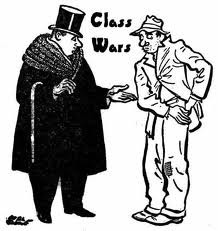
Class Wars
I agree with the Republicans. I don't want to pay more taxes but i do want everyone to pay the same percentage. I fail to understand how so many people who define themselves as patriotic cannot see that they are hurting their country. The pride that people take, the money they throw at accountants to help them find every loophole, disgusts me.
The problem is that those who legislate for us tend to be a part of this higher income group, or rely on their donations to keep them in power, since it is money not actions that fuel this democracy. Warren Buffet acknowledges as much when he says: "My friends and I have been coddled long enough by a billionaire-friendly Congress. It's time for our government to get serious about shared sacrifice."
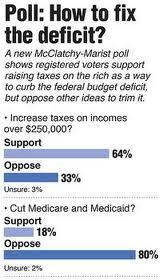
The Majority Want Equal Responsibility
Who among the rich and the politicians would support paying the same percentage of taxes that I do? Probably only those who believe in their country and are patriotic. Sadly. wearing a flag pin on your jacket lapel is not enough.
——————————————————————————————————
Alon Shalev is the author of The Accidental Activist (now available on Kindle) and A Gardener's Tale. He is the Executive Director of the San Francisco Hillel Foundation, a non-profit that provides spiritual and social justice opportunities to Jewish students in the Bay Area. More on Alon Shalev at http://www.alonshalev.com/and on Twitter (#alonshalevsf).
September 4, 2011
Chez Panisse at 40
They were out in force last weekend, the gourmet gurus from around the world as Alice Waters and Chez Panisse, the little restaurant where the organic food revolution began four decades ago, celebrated a well-deserved 40 year anniversary. Waters once called her creation a "simple little place where we could cook and talk politics."
I have never eaten at the restaurant but Alice Waters is an inspiration to me. When I turned vegetarian in 1978 the only option on my diet was soy protein pieces that looked and smelt terrible. My mother and I bravely experimented with various sauces, but nothing covered that taste. I only stayed veggie because I wanted to date this political 13-year-old who had told me she would never date a guy who murdered and abused animals (or allowed others to). My desire to eat healthy outlasted my teenage crush.

Alice Waters - last weekend
The Smithsonian's National Portrait Gallery will hang a photographic portrait of Waters. It is telling that Ms. Waters chose a photo not of the restaurant, but of the Edible Schoolyards in which students create and tend an organic garden as part of their school curriculum, that became her second passion.
My eldest son attends Martin Luther King Jr., Middle School in Berkeley, the scene of Water's first Edible Schoolyard. I am extremely grateful to her for this initiative and her desire to share her vision with our youth while they are still at an impressionable age.
The weekend's events saw intimate dinners cooked in homes around the Bay Area by different chefs — Waters didn't want a big gala event where she wouldn't have an opportunity to talk with her guests — doubled as fund-raisers for the Edible Schoolyard Project.
Thank you Ms. Waters for having a vision that will impact people from all walks of life and all socioeconomic levels. Berkeley salutes you.
——————————————————————————————————
Alon Shalev is the author of The Accidental Activist (now available on Kindle) and A Gardener's Tale. He is the Executive Director of the San Francisco Hillel Foundation, a non-profit that provides spiritual and social justice opportunities to Jewish students in the Bay Area. More on Alon Shalev at http://www.alonshalev.com/and on Twitter (#alonshalevsf).








September 3, 2011
Why We Read Fantasy 2
Last weekend, I shared some comments from adults who we asked why they read fantasy. A friend sent me this article by Lev Grossman, author of "The Magicians" and the recently released "The Magician King."
In the article, Grossman talks about the excitement generated by the release of George R.R. Martin's "A Dance With Dragons."
"The book has brought with it, along with the feverish excitement of fans like myself, a whiff of burning insulation. There's a cultural short circuit happening somewhere in the system."
What I believe is creating the stir is the fact that while Mr. Martin's work is clearly fantasy, it does not adhere to the formulaes of such leaders as J.R.R. Tolkien and C.S. Lewis. Martin includes a fair helping of blood and sex in his continent of Westeros than the Pevensie children ever saw in Narnia. Something has changed.
Grossman shares his frustration at the perception that fantasy is for children and adults who are in denial that they are adults and seeking some escapism. "I see it all the time. I'll be at a dinner party, and the person next to me asks me what I do. I'm a novelist, I'll say, and a little light of hopeful interest kindles in their eyes. What kind of novels do you write? the dinner guest asks. And I reply: fantasy novels. And just like that, the little light of hopeful interest dies away."This story really resonates with me. Every week at the Berkeley Writers Group, I meet new people and introduce myself as an author of political fiction. Then when I prepare to read my weekly offering, I apologetically explain that I wrote a fantasy novel with my eldest son. All true of course, but I am conscious that I am using it as justification.
Why? Grossman goes on to say: "It hasn't always been this way. There was a time when adults read fantasy with impunity. The classical literature of Greece and Rome is so fantastical that you can't swing a cat without hitting a god or a witch or a centaur, and chances are the cat will turn out to be somebody's long-lost son-in-law in transfigured form."
Right on! Stephen Wenster backs him up by asking where "would Shakespeare have been without fantasy—his spirits, his ghosts and the witches three of Macbeth?"
Apparently fantasy, without being labeled as a genre was prominent throughout literature history: "Where would Spenser's "Faerie Queene" be without fairies? Where would Shakespeare have been without fantasy—his spirits, his ghosts, and his proto-Orc Caliban, the misshapen villain of "The Tempest"? You can't have Macbeth without the witches three. Apart from everything else, who would have handled all that crucial exposition of the play's plot?"
Absolutely!

Lev Grossman
Grossman, who holds a Ph.D in Comparative Literature, acknowledges that around the time of Samuel Johnson. Perhaps they actually began to believe that ghosts and magic really didn't exist.
Again, Lev Grossman: "A fascination with the here and the now and the real set in. This was the moment when the novel arose in the West, and it was an ideal medium to satisfy that fascination. Novels were about the way we live now. There was no Caliban on Robinson Crusoe's island, just the eminently human Friday.
"In 1750, Samuel Johnson wrote an influential essay in praise of fiction that was about "life in its true state, diversified only by accidents that daily happen in the world." As far as he was concerned, a good novel "can neither employ giants to snatch away a lady from the nuptial rites, nor knights to bring her back from captivity; it can neither bewilder its personages in deserts, nor lodge them in imaginary castles." Thus admonished, ghosts and witches went off to live in fairy tales and allegories and gothic novels and other disreputable places."
So history is against us, perhaps because people really did believe in magic and ghosts. But I do believe that the fact that we all accept that there is nothing factual in elves, dwarfs etc. allows us to focus on allowing values to play a prominent role because, as Grossman say: "If anything, it is realist literature that pretends to be real. Fantasy doesn't pretend."
Fantasy is one of the few literary genres left where it is still considered okay to explore questions of moral judgment. But that's not a bad thing. When the powerless and good become empowered and are able to change the destiny of their world, there is something that resonates in a world where so many feel alienated and disenfranchised. When coming-of-age can happen at any age, why would an adult still hoping to leave his/her mark on the world not be attracted to such novels?
As Grossman says: "It's one of the great human stories" and I suspect this is why fantasy novels will continue to draw a big crowd of adults who want to still believe that we can make a difference in our world.
——————————————————————————————————
Alon Shalev is the author of The Accidental Activist (now available on Kindle) and A Gardener's Tale. He is the Executive Director of the San Francisco Hillel Foundation, a non-profit that provides spiritual and social justice opportunities to Jewish students in the Bay Area. More on Alon Shalev at http://www.alonshalev.com/and on Twitter (#alonshalevsf).








September 2, 2011
I HAVEN'T died on schedule.
I've been holding off on this one for a while, primarily because of my close friend, Rebecca, who passed away 10 days ago. But she, like so many, defied the doctors and statistics, to go on living far beyond what was expected of her.
"I haven't died on schedule." So begins a beautiful article by Mark Trautwein from San Francisco in The New York Times.

Mark Trautwein
I have now met a couple of people who have lasted longer than they thought, or rather than they were told by their doctors. My grandmother lasted several years more than anyone expected. Anyone, that is but her. She announced that she would see all her grandchildren have their barmitzvahs. Mine was still several years in the future and some in the family raised eyebrows. She passed away shortly after my barmitzvah – when she was ready, people said.
How do you live under such a cloud, a death sentence, really? Where do these people find the strength not just to survive, but live. My friend, Rebecca, lived her life in full until the end, helping people as she had all her life.
My heart is full of admiration for those people who live in such conditions. They seem so brave, so strong. I think how much the rest of us can learn from their example. Please take a moment to read the article. You can also follow Mark's blog.
It has occurred to me that unless we are living under the same roof as that person, it is really difficult to keep their struggle in our minds or to normalize it. Probably, we only see them when they are feeling good, certainly not when they are having treatment or lying awake in the middle of the night. Often, they don't want to dwell on their struggle when you visit, preferring to hear about your life (don't your problems seem so insignificant at that moment?) or discuss what they crave for – normalcy.
Do you know someone who is fighting a life-threatening disease, illness etc.? Maybe it's time to go round, hang out with them, be in the picture. If you can't, give them a call. It's Labor Day weekend coming up. You have time, not that you can measure time. Ask these people.
——————————————————————————————————
Alon Shalev is the author of The Accidental Activist (now available on Kindle) and A Gardener's Tale. He is the Executive Director of the San Francisco Hillel Foundation, a non-profit that provides spiritual and social justice opportunities to Jewish students in the Bay Area. More on Alon Shalev at http://www.alonshalev.com/and on Twitter (#alonshalevsf).
——————————————————————————————————








September 1, 2011
Strawberries to Die For (by Roger Ingalls)
How do you like your strawberries…big, juicy and sweet? Perhaps you like them tainted with injustice. Would you buy those strawberries knowing your dollar was the enabler for mentally damaging an unborn child or enabling the growth of cancer within the body of a field worker?
In December of 2010, California approved the use of Methyl Iodide for growing strawberries. According to UCLA Chemist John Froines, this is one of the most toxic chemicals on earth.
Here's what other experts say:
1) "Causes brain damage in developing fetuses"
2) "High likelihood it is a developmental neurotoxin"
3) "Animal test show neurological deficiency"
4) "We're worried fumigant will be inhaled by pregnant farm workers, nearby pregnant women or children, causing IQ loss"
Why would California approve such a potentially hazardous chemical for food cultivation? Governor Schwarzenegger appointed Mary-Ann Warmerdam to lead the Dept of Pesticide Regulation and it has been speculated that she let the chemical industry (money empowered lobbyist) overide her own scientists. She approved the use of Methyl Iodide against the advice of scientifically qualified professionals. Another influential factor may have been the strawberry industry. California produces 90% of the country's strawberries (greater than $2 billion) and the industry is obviously motivated to keep yields high. Warmerdam has since resigned her appointment and now works for a large chemical company.
But all is not lost. In an attempt to ban the chemical, a coalition of environmental and worker groups has sued the state. They have been successful in getting a judge to order the release of hidden documents created during the chemical approval process. Warmerdam and others had previously refused to hand over this information. The suit is ongoing.
California farmers have already started using Methyl Iodide and they are expected to increase its use when strawberry planting season begins this fall. It will be the first full season with the chemical.
By purchasing strawberries grown with Methyl Iodide, we endorse and potentially share in the responsibility of creating a handicapped child; the thought of this is appalling.
What can WE do? The most direct way to send a message to irresponsible growers and retailers is to purchase produce grown by socially responsible farmers. Ask questions about your food before laying down the cash.
Let's vote with our dollars. It's the most powerful weapon we have.
pictures from: layoutcodez.net, strawberriesweb.com, ozarksunbound.com, now.org
—————————————————————
Roger Ingalls is well traveled and has seen the good and bad of many foreign governments. He hopes his blogging will encourage readers to think more deeply about the American political system and its impact on US citizens and the international community.








August 31, 2011
Summer's Over – A Personal Post
It's been a roller coaster of a summer and today, the last day of August, it seems a good time to catch up and look forward.
The high point was my family camping trip. My boys caught some tasty trout, completed their first serious bike ride (five hours) on bike paths around Lake Siskiyou and we enjoyed some wonderful quality family time that is invaluable in our stressful and packed world.
The low point, as I blogged last week, was the sad passing away of my dear friend Rebecca. Judaism has many beautiful rituals surrounding death. I participated in Shmirat Hagoof (guarding the body) whereby friends took turns to sit with the body for the time between passing and burial. I spent two hours sitting and talking with her, and it was very meaningful. The funeral and the shiva (visiting the mourners in their house) were both fitting tributes to a wonderful woman. Many, many family and friends bonded and shared inspiring memories and humorous stories. While mourning her death, we celebrated her life, as she wanted.
In my writing life, I completed the manuscript for the sequel to Unwanted Heroes (due 01/2012) and a sequel to my fantasy novel together with my oldest son, and Left Coast Voices was nominated as one of San Francisco's Most Valuable Blogs.
Also, The Accidental Activist is now in The Berkeley Public Library system after the California Writer's Club donated a number of their authors' books.

Author JoAnn Smith Ainsworth makes the presentation on behalf of the California Writer's Club
Looking forward to the next few months and there are three exciting landmarks coming up.
1. A Gardener's Tale will be released on kindle. It is being professionally edited at the moment.
2. Three Clover Press is sending me on a national 10-15 stop book tour in November – without me having to leave home. They have signed a deal with a company that specializes in this. I will keep you informed as I learn more.
3. Unwanted Heroes is planned for a January release. We will begin looking for a cover artist and the rest of the exciting process.
Finally, for a limited time, The Accidental Activist is available on Kindle at $2.99 – less than the last cappuccino I bought (though the book doesn't come with chocolate powder).
Have a great September,
Alon
——————————————————————————————————
Alon Shalev is the author of The Accidental Activist (now available on Kindle) and A Gardener's Tale. He is the Executive Director of the San Francisco Hillel Foundation, a non-profit that provides spiritual and social justice opportunities to Jewish students in the Bay Area. More on Alon Shalev at http://www.alonshalev.com/and on Twitter (#alonshalevsf).








August 30, 2011
Why Riot?
I'm still away from home – down in inland southern California where it's about 110 degrees (you may think I'm exaggerating, but I'm not). Right now, I'm hiding from the heat, indoors with the air-conditioning going strong.
It's a good time to think about when and why people seem to put themselves in a less-than-comfortable situation such as a protest or even a riot. Recently, riots have erupted all around the world – London, the middle-east, France, and right here in the USA (although not TOO out of hand for the most part). Let's, for now, overlook the criminal behavior that oftentimes erupts from these events so that we can concentrate on the reasons the events happen in the first place. I certainly don't intend to do some sort of exhaustive, academic treatise on the subject, but just to explore a couple of thoughts.
I've written about this a bit before, but let's take it a little further. People protest when they feel that "the system" isn't working for them. They riot when they feel helpless – as if the only thing they can do is to lash out – often against whatever target is handy – even if it's wildly inappropriate or even counterproductive. These often savage actions arise when a crowd has decided, some individually and some only because they go along, that there is nothing else to do.
In the past, many of these uprisings have led to bloody revolutions – or at least attempts at such. In the past, insulated, uncaring governments (monarchies, dictatorships, oligarchies, etc.) have concentrated power and wealth more and more until the lower classes saw such a dismal future that they felt they had to act. What else was there to do? Vote?!?
So now we, at least in the so-called western world, have the power to vote. But what has changed? Well, some important things, to be sure. But our democracy has been around long enough to have been finessed, schmoozed, and finally taken over by the most powerful. This is true not only of the U.S., but many European democracies as well.
Many feel themselves back in the same-old situation – oppression by the powerful. And they have voted, but the options in the elections are basically red corporate dominance… or blue corporate dominance.
So what's left? Futile acts of mob violence, directed (or misdirected) at almost random, meaningless targets. I'm not defending this, nor in any way supporting it, but this is what happens.

Again I find myself wanting to call for unified, LEGAL action. We the oppressed cannot simply strike out blindly. Instead, we have to identify the lies that have got us here – such as, "With lower taxes, corporations will create jobs," and then get this information out to the people. Then we must, as a people (in whatever country you reside) REJECT any politician who forwards these lies.
It's time for economic as well as social myths to be shattered. This won't bring an end to violence, but it will surely diminish. We don't have to be helpless.
-Tom Rossi
___________________________________________________________________________
Tom Rossi is a commentator on politics and social issues. He is a Ph.D. student in International Sustainable Development, concentrating in natural resource and economic policy. Tom greatly enjoys a hearty debate, especially over a hearty pint of Guinness.
Tom also posts on thrustblog.blogspot.com
___________________________________________________________________________








August 29, 2011
More Twitter Tips for Authors
A month ago, I shared a few blog posts and articles regarding my attempt to leverage Twitter. Here are some good YouTube videos.
If you have any tips or experiences using Twitter please share with us in the comments.

Please Vote Today. Click Here.
——————————————————————————————————
Alon Shalev is the author of The Accidental Activist (now available on Kindle) and A Gardener's Tale. He is the Executive Director of the San Francisco Hillel Foundation, a non-profit that provides spiritual and social justice opportunities to Jewish students in the Bay Area. More on Alon Shalev at http://www.alonshalev.com/ and on Twitter (#alonshalevsf).








August 28, 2011
Why We Read Fantasy
This week I completed the manuscript for my second fantasy novel. What began a year ago as a way to bond with my oldest son took on a whole new perspective. I had previously read Tolkien, Paolini and probably a few others, but I never considered this my genre.
Now, 180,000+ on, I am reading about fantasy writing techniques, devouring books by authors such as Terry Brooks and R.A. Salvatore, and considering getting my ears pointed (okay – but there really are people who do this cosmetic surgery).

Hey Mom, I promised no tatoos!
Whenever I tell people, especially those who know I write political fiction, about my foray into the world of fantasy, I do it in a somewhat apologetic way. Usually, I make sure to tell people that I am doing it for my son, which while true, is only part of it as my enthusiasm grows.
The question that is on my mind these days is why do intelligent, educated adults enjoy plowing through 90,000 word tomes about elves, dwarfs and dragons? Here are some Wiki answers:
"Some fantasy readers are unhappy with their lives and think that they would be happier in another world. A place where someone who is not so successful in this world might be a hero or king in another world."
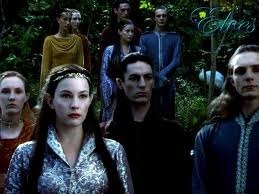
"I like reading fantasy books because they provide me with a beneficial different point of view on world and everything. I like to think about it using the analogy to house that you may live in but you'll never be able to understand if you don't ever get outside and look at it from perspective."
"You can see a lot of tiny details in fantasy books that you may somehow lose in your everyday life just because they aren't getting enough your attention… Digest them and they'll make your life more colorful and interesting.
A lot of fantasy is about the world we would like to see, a dream we want to pursue. Where would we be at if we didn't dream?"

"Older readers might enjoy Fantasy because of its imaginative scope, and also because of the uncanny ability fantasy has to show us aspects of our own lives in an otherwise far-fetched format. People can relate to the emotions and experiences of fantasy characters, as well as mirror events in human history, through the blurred mirror of the fantasy world."
"Fantasy is a place to escape when you no longer want to live in real life. Where you can let your imagination run free and have control over what you see and hear.
Many people like to escape the hustle and bustle of real life and be captured by a story which involves something special, unreal or different – possibly magic. People enjoy being in someone else's shoes – someone extraordinary, so that we can look at the world through anothers eyes. You can switch off and enjoy letting your imagination run wild."

Do you read fantasy? If so share what the attraction is for you? If you read it once in a period of your life, why then and not now? Fascinating stuff.

Please Vote Today. Click Here.
——————————————————————————————————
Alon Shalev is the author of The Accidental Activist (now available on Kindle) and A Gardener's Tale. He is the Executive Director of the San Francisco Hillel Foundation, a non-profit that provides spiritual and social justice opportunities to Jewish students in the Bay Area. More on Alon Shalev at http://www.alonshalev.com/and on Twitter (#alonshalevsf).


















